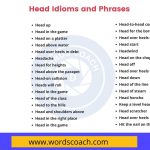What is a Noun Phrase?
A noun phrase is a group of words centered around a noun or pronoun that functions as a noun. It includes modifiers, determiners, and other words that provide additional information about the noun. Noun phrases serve the purpose of identifying, describing, or specifying a person, place, thing, or idea.
Here’s a breakdown of the definition, purpose, and use of noun phrases:
Definition of a noun phrase:
A noun phrase is a phrase that consists of a noun or pronoun as its head, along with modifiers, articles, adjectives, and other words that provide additional information or clarification about the noun.
Purpose of a noun phrase:
The purpose of a noun phrase is to identify, describe, or specify a person, place, thing, or idea in a sentence. It helps to add specificity, detail, and clarity to the noun it modifies. Noun phrases allow for more precise and concise communication by grouping related words around a central noun.
Use of a noun phrase:
- Subject: Noun phrases can serve as the subject of a sentence. For example: “The bright sun shines in the sky.”
- Object: Noun phrases can function as direct objects, indirect objects, or objects of prepositions. For example:
- Direct object: “She bought a beautiful painting.”
- Indirect object: “He gave his sister a gift.”
- Object of preposition: “They went to the park with their friends.”
- Modifier: Noun phrases can modify other nouns or pronouns to provide additional information. For example: “The tall building in the city.”
- Appositive: Noun phrases can act as appositives, providing further explanation or clarification about a noun. For example: “Jane, my best friend, is coming over.”
- Predicate Nominative: Noun phrases can function as predicate nominatives, renaming or restating the subject. For example: “The winner is John.”
Types of Noun Phrases
Noun phrases can be categorized into different types based on their structure and function within a sentence.
Here are some common types of noun phrases:
- Simple Noun Phrase: A simple noun phrase consists of a single noun or pronoun without any modifiers. For example: “Cat,” “She,” “Books.”
- Expanded Noun Phrase: An expanded noun phrase includes additional words that modify or describe the noun. This can include articles, adjectives, determiners, or prepositional phrases. For example: “The big black cat,” “Several interesting books.”
- Compound Noun Phrase: A compound noun phrase consists of two or more nouns joined together to form a single unit. The nouns can be connected by hyphens or combined as a single word. For example: “Mother-in-law,” “High school student.”
- Appositive Noun Phrase: An appositive noun phrase provides additional information or clarification about a noun by renaming or restating it. It is usually set off by commas. For example: “Tom, the famous actor,” “The city, a bustling metropolis.”
- Gerund Noun Phrase: A gerund noun phrase features a gerund (a verb form ending in “-ing”) acting as a noun, along with modifiers or complements. For example: “Running marathons is his passion,” “Her singing captivated the audience.”
- Pronoun Noun Phrase: A pronoun noun phrase uses a pronoun as the main element, often with modifiers or determiners. For example: “They,” “His,” “Somebody else’s.”
- Possessive Noun Phrase: A possessive noun phrase shows ownership or relationship using a possessive determiner or noun. For example: “My car,” “John’s book.”
- Indirect Object Noun Phrase: An indirect object noun phrase indicates the recipient or beneficiary of an action. It typically follows a verb and comes before the direct object. For example: “She gave her friend a gift.”
How To Use a Noun Phrase in a Sentence
Using a noun phrase in a sentence involves incorporating it effectively to convey meaning and provide additional information about the noun. Here are some guidelines on how to use a noun phrase in a sentence:
- Identify the Head Noun: Start by identifying the main noun that the noun phrase will modify or describe. This will be the central element around which the noun phrase is built.
- Add Modifiers: Include modifiers such as adjectives, articles, determiners, or quantifiers before the noun to provide additional details or descriptions. These modifiers help specify or qualify the noun. For example: “The tall building,” “Three beautiful flowers.”
- Include Possessives: Use possessive determiners or nouns to indicate ownership or relationship. This helps provide clarity about the noun’s possession. For example: “His car,” “The company’s success.”
- Incorporate Appositives: Introduce an appositive noun phrase to offer additional information or clarification about the noun. It typically follows a comma and renames or restates the noun. For example: “My brother, a talented musician, plays the guitar.”
- Consider Prepositional Phrases: Include prepositional phrases after the noun to provide further details about its location, time, or relationship to other elements in the sentence. For example: “The book on the table,” “The girl with the red hat.”
- Use Gerunds: Utilize gerund noun phrases when the noun is in the form of a gerund (verb ending in “-ing”) acting as a noun. This helps convey actions or activities related to the noun. For example: “Her singing brought joy to everyone,” “I enjoy swimming in the ocean.”
- Consider Placement: Position the noun phrase appropriately within the sentence. It can function as a subject, object, or complement. Ensure that it fits grammatically and syntactically within the sentence structure.
- Maintain Agreement: Ensure that the modifiers within the noun phrase agree in number and gender with the noun they modify. This helps maintain consistency and accuracy in the sentence. For example: “The red apples,” “His favorite movies.”
Noun phrases can vary in length and complexity, ranging from a single word to multiple words with various modifiers. They play a crucial role in sentence construction by adding descriptive details and conveying specific meaning. Understanding noun phrases helps in constructing clear and effective sentences that accurately convey information.





